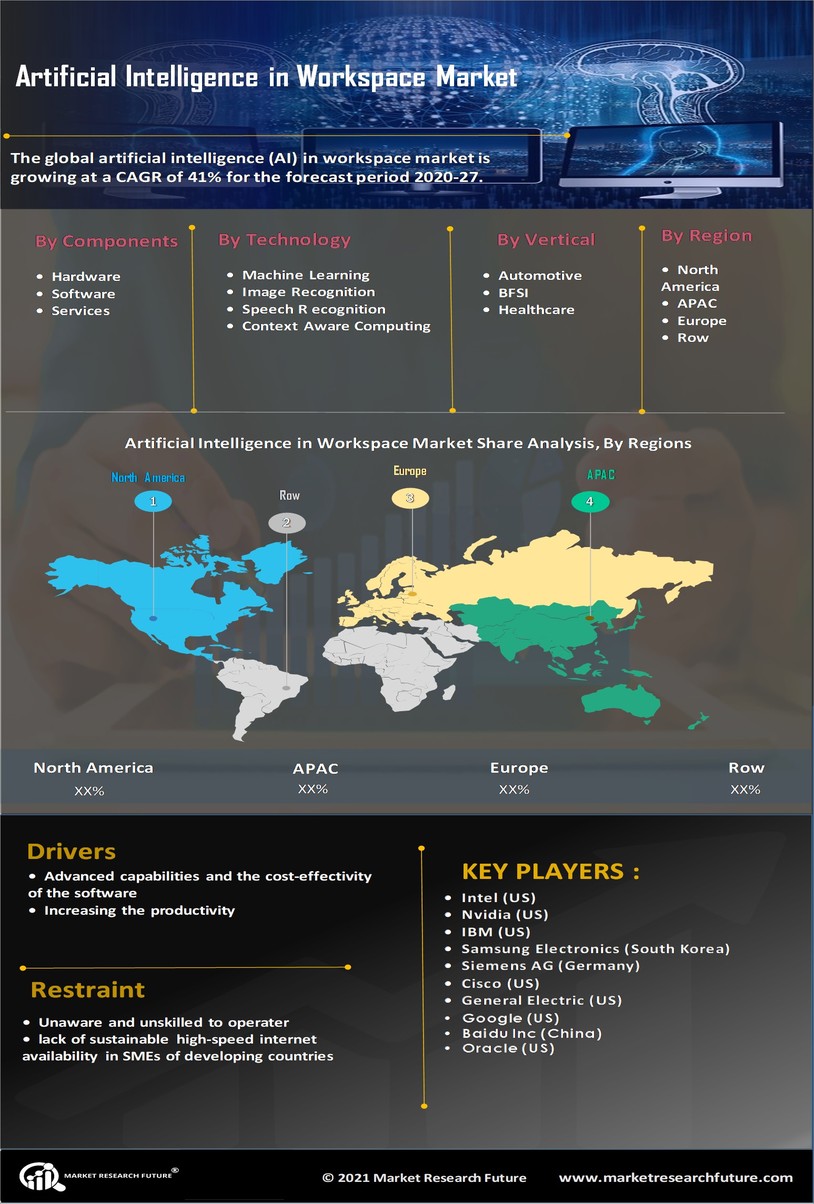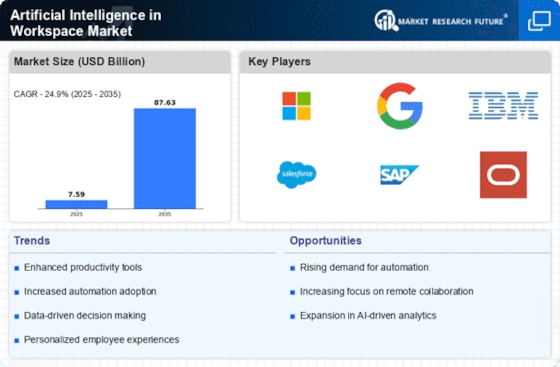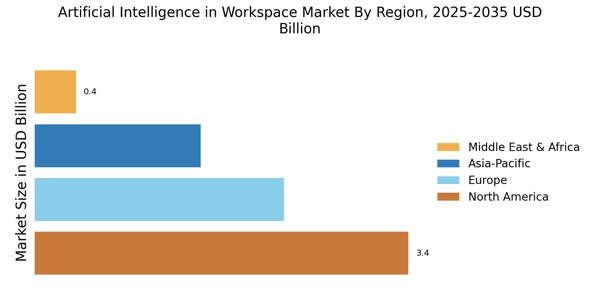Data Security and Compliance
Data security and compliance are becoming increasingly critical in the Artificial Intelligence in Workspace Market. As organizations adopt AI technologies, they must also address the associated risks related to data privacy and security. AI solutions are being developed to enhance security protocols, monitor compliance, and protect sensitive information. For example, AI-driven cybersecurity tools can detect anomalies in real-time, providing organizations with the ability to respond swiftly to potential threats. The growing emphasis on data protection regulations is likely to drive the demand for AI solutions that ensure compliance while safeguarding organizational data. This focus on security is expected to shape the future landscape of AI in workspaces.
Integration of AI Technologies
The integration of advanced AI technologies into the workspace is a pivotal driver for the Artificial Intelligence in Workspace Market. Organizations are increasingly adopting AI tools to streamline operations, enhance productivity, and improve decision-making processes. For instance, AI-driven analytics platforms are being utilized to process vast amounts of data, enabling businesses to derive actionable insights. According to recent estimates, the market for AI technologies in workspaces is projected to grow at a compound annual growth rate of over 30% in the coming years. This trend indicates a robust demand for AI solutions that can seamlessly integrate with existing systems, thereby transforming traditional work environments into more efficient and intelligent spaces.
Personalization of Work Experiences
Personalization is emerging as a crucial factor in the Artificial Intelligence in Workspace Market. AI technologies enable organizations to tailor work experiences to individual employee needs, preferences, and performance metrics. By leveraging machine learning algorithms, companies can analyze employee behavior and engagement levels, subsequently providing customized resources and support. This approach not only enhances employee satisfaction but also boosts productivity. Research suggests that organizations implementing personalized AI solutions witness a notable increase in employee retention rates, which can be attributed to a more engaging work environment. As businesses continue to prioritize employee well-being, the demand for personalized AI applications is likely to escalate.
Enhanced Collaboration and Communication
Enhanced collaboration and communication facilitated by AI technologies are driving growth in the Artificial Intelligence in Workspace Market. AI tools are designed to improve team interactions, streamline project management, and foster a collaborative culture. For instance, AI-driven platforms can analyze communication patterns and suggest optimal collaboration strategies, thereby enhancing team dynamics. Furthermore, the integration of AI in communication tools can lead to more efficient information sharing and decision-making processes. As organizations increasingly embrace remote and hybrid work models, the demand for AI solutions that support seamless collaboration is expected to rise, indicating a transformative shift in workplace dynamics.
Cost Efficiency and Resource Optimization
Cost efficiency remains a significant driver in the Artificial Intelligence in Workspace Market. Organizations are increasingly recognizing the potential of AI to reduce operational costs and optimize resource allocation. By automating routine tasks and streamlining workflows, AI technologies can lead to substantial savings in time and labor costs. For example, AI-powered chatbots are being deployed to handle customer inquiries, freeing up human resources for more complex tasks. This shift not only enhances service delivery but also allows companies to allocate resources more effectively. Market analysis indicates that businesses adopting AI solutions can achieve cost reductions of up to 20%, further solidifying the role of AI in modern workspaces.


















